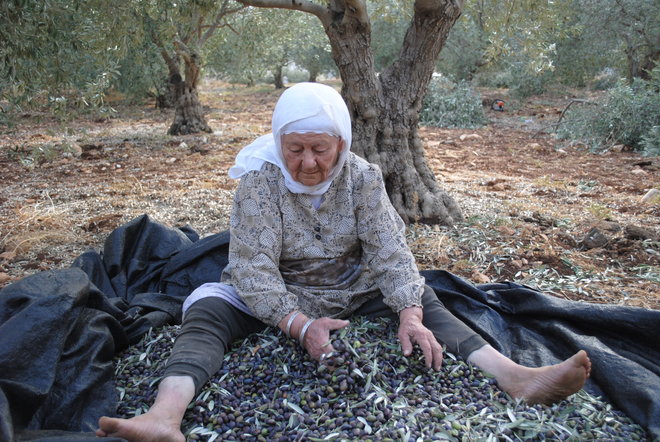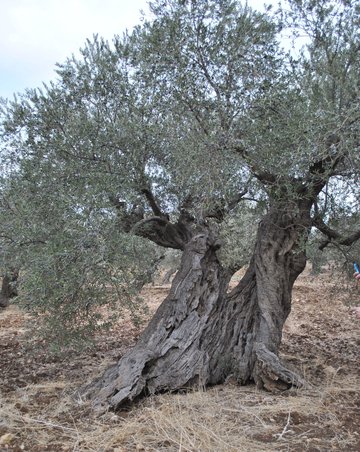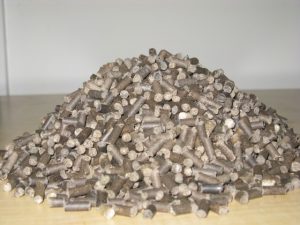 Artisinal olive oil. It has an attractive ring, but think what “artisinal” means. You associate it with ancient traditions that living people continue to maintain – with the material products of those traditions.
Artisinal olive oil. It has an attractive ring, but think what “artisinal” means. You associate it with ancient traditions that living people continue to maintain – with the material products of those traditions.
But when you pick up a bottle of olive oil, you’re probably thinking of salad, not imagining the physical labor involved in making it. I learned about Israel’s olive crops and the mix of ancient and modern methods of producing olive oil, on a tour of the Galilee olive festival this week. Laurie Balbo reported on the olive tree’s historical origins in this fascinating post.
Every October and November, the the Ministry for the Development of the Negev and the Galilee, the Galilee Development Authority and the Olive Council sponsor the Olive Branch Festival celebrating the olive harvest. Enjoying the cool fall weather, visitors tour villages throughout the Galilee, the Golan and the valleys where olives and their oil are a culture unto themselves. In the north of the country, it’s an opportunity to meet Druze villagers whose livelihood depends largely on olive oil production. We’ve reported on our Druze culinary experience in this post. And if you like olive oil, you can take advantage of the chance to buy it fresh – almost right off the tree.
This year’s olive festival was in full swing when Green Prophet visited Kibbutz Parod, where the Saba Habib olive oil manufacturer is housed. Saba Habib produces olives, oil, and soaps and other cosmetic products based on olive oil. We met Saba Habib, grandson of the farm’s original founder, and head of the business today. Our tour guide translated as Saba Habib explained in Arabic about the farm and its products.
 Saba Habib showed us how to judge the quality of olive oil: if a drop held between thumb and forefinger holds its shape and doesn’t dribble away, the oil is pure olive and fresh.
Saba Habib showed us how to judge the quality of olive oil: if a drop held between thumb and forefinger holds its shape and doesn’t dribble away, the oil is pure olive and fresh.
 I was taken not only by the fresh oil and olives, but by the hand-made soaps, some of which are based on camel milk. Just looking at those soaps, you know that only pure, skin-friendly ingredients are in it, unlike commercial personal hygiene products that are suspected of being carcinogenic.
I was taken not only by the fresh oil and olives, but by the hand-made soaps, some of which are based on camel milk. Just looking at those soaps, you know that only pure, skin-friendly ingredients are in it, unlike commercial personal hygiene products that are suspected of being carcinogenic.
 The Israel Olive Board (website in Hebrew) has its offices nearby on the Hananyah Farm. Prof. Adi Naali, CEO, took us for a stroll in the orchards and gave a short talk about Israel’s olives and how the country has modernized production.
The Israel Olive Board (website in Hebrew) has its offices nearby on the Hananyah Farm. Prof. Adi Naali, CEO, took us for a stroll in the orchards and gave a short talk about Israel’s olives and how the country has modernized production.
“Until two years ago, Israel couldn’t even keep up with the local demand,” says Naali. “The Galilee has 250 dunams of olive groves that survive on rainfall alone, mostly in Druze villages. The annual average of those trees is 50 kg of olive oil per dunam. The Ministry of Agriculture is encouraging farmers to grow more olive trees, introducing modern agricultural methods like drip irrigation.”
“Farmers were reluctant to irrigate at first,” he notes. “It went against tradition. But it soon became clear that irrigated trees produce four or five times as much oil as non-irrigated trees: an average of 200 kg. oil per dunam.
“We can’t compare our output with Europe’s massive olive oil production. On the other hand, Israel is too small to produce bad olive oil. Large olive farms can’t handle their huge quantities of ripe olives at once; some of their olives may ferment and lose quality while waiting for processing. We have enough labor and mills to process the harvest immediately. There’s a proverb in Arabic: olives should go ‘from the tree to the stone’ – the grinding stones of the mill. Israeli olive oil has earned prizes in international competitions. ”
 “Olive trees are tough and resistant to diseases,” adds Naali. “If attacked by the olive fly, we use an organic spray to get rid of it. Olive trees are sustainable agriculture par excellence. They don’t need much water, fertilizer or pesticide. No part of the harvest goes to waste. We compost the pomace, or the mass left over from crushing the fruit. Even the vegetable water that separates from the oil during processing is spread out over the soil in the orchards as fertilizer.”
“Olive trees are tough and resistant to diseases,” adds Naali. “If attacked by the olive fly, we use an organic spray to get rid of it. Olive trees are sustainable agriculture par excellence. They don’t need much water, fertilizer or pesticide. No part of the harvest goes to waste. We compost the pomace, or the mass left over from crushing the fruit. Even the vegetable water that separates from the oil during processing is spread out over the soil in the orchards as fertilizer.”
The Olive Board has recently issued certification of olive oil purity, to assure consumers that the product with the oil-drop logo on the packaging is the real, unadulterated thing. The wonderfully cheap olive oils that consumers were eagerly picking up in supermarkets a while ago turned out to be a fraud.
And olive trees can live for hundreds, even thousands of years. We enjoyed a jeep drive to serene olive groves where ancient trees said to be 2000 years old are still bearing good fruit.
The next sight to meet our eyes was the Druze grandmother winnowing the leaves out of just-picked olives (top photo). It looked like mild exercise that an elderly woman used to a lifetime of outdoor work might like. I reflected on how much human labor goes into artisinal olive oil.
We strolled on and watched the harvest itself. Traditionally, harvest was accomplished by beating the branches, which breaks many of them. These workers used an Italian-made rotating device that knocks the olives off the tree without harming the branches.
 The Olive Branch Festival is winding down, with sites open on weekends until November 9th. If you can’t make it this year, be assured that next year it promises to be even richer in events and attractions for domestic and foreign tourists. However, all is not lost – all during Hanukkah week, there will be more tours, activities and workshops (November 28th – December 5th). Browse through the North Tourism’s site, GoGalilee, to see.
The Olive Branch Festival is winding down, with sites open on weekends until November 9th. If you can’t make it this year, be assured that next year it promises to be even richer in events and attractions for domestic and foreign tourists. However, all is not lost – all during Hanukkah week, there will be more tours, activities and workshops (November 28th – December 5th). Browse through the North Tourism’s site, GoGalilee, to see.
More on olives and olive on Green Prophet:
10 Weird and Wonderful Uses For Olive Oil
The World’s Oldest Living Olive Trees
Green Waste Processes For Boutique Olive Presses and Wineries
Preserving Olives The Green Prophet Way




please send me the 2014 program of the olive festival and the conditions required to participate.
This participation will help me to launch olive tree production in my country .
i am Cameroonian in the central Africa .
Thanks.
please send me the 2014 program of the olive festival and the conditions required to participate. This participation will help me to launch olive tree production in my country . i am Cameroonian in the central Africa .